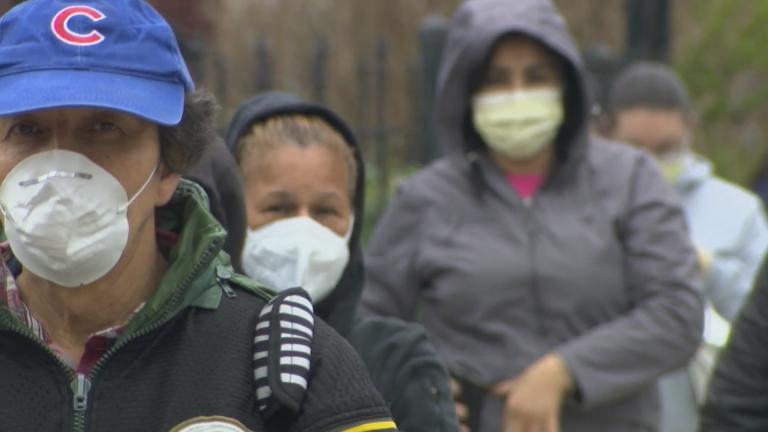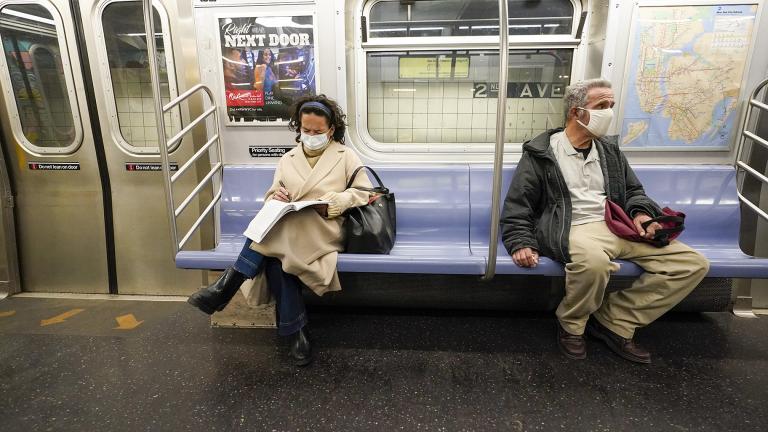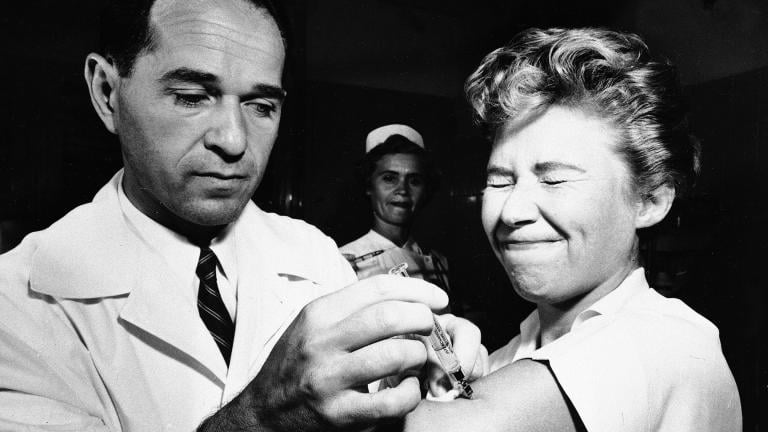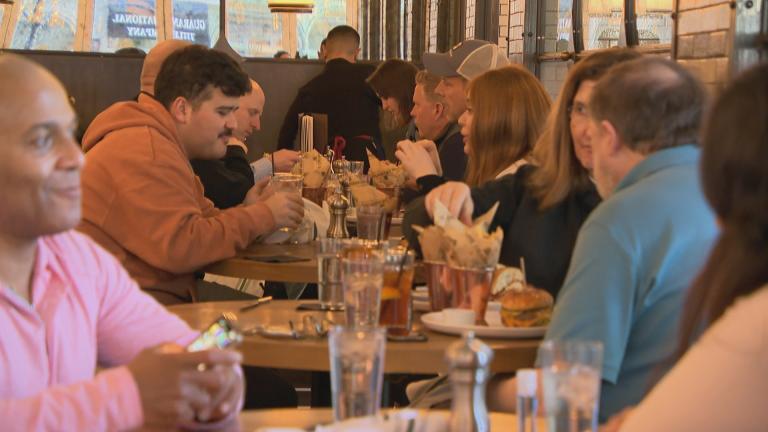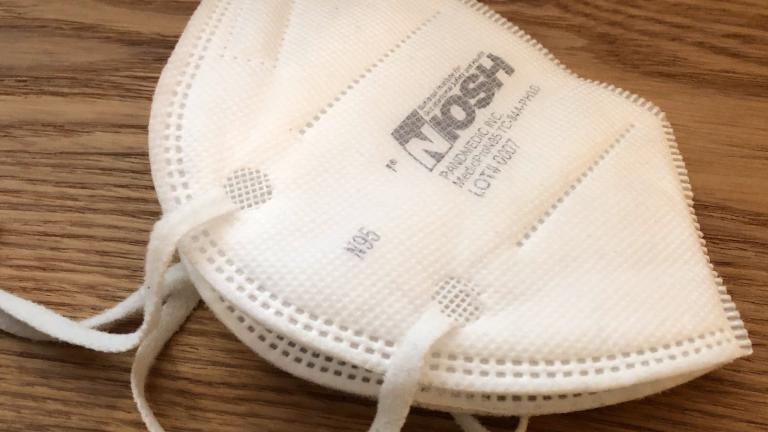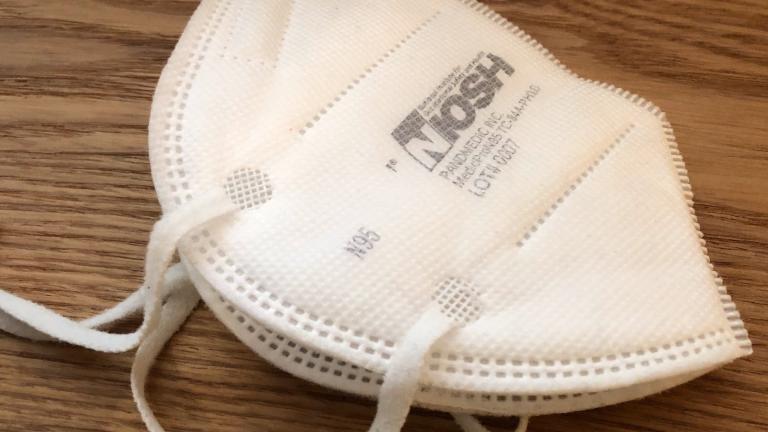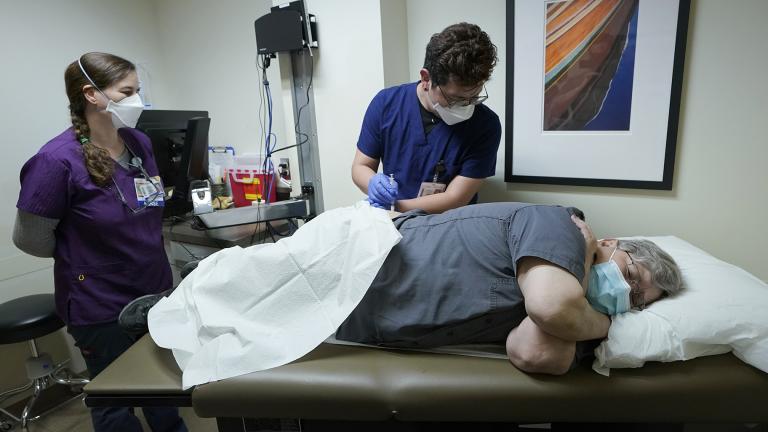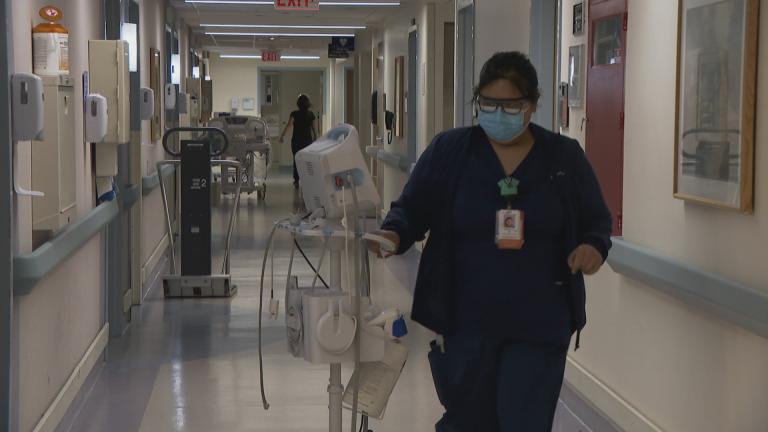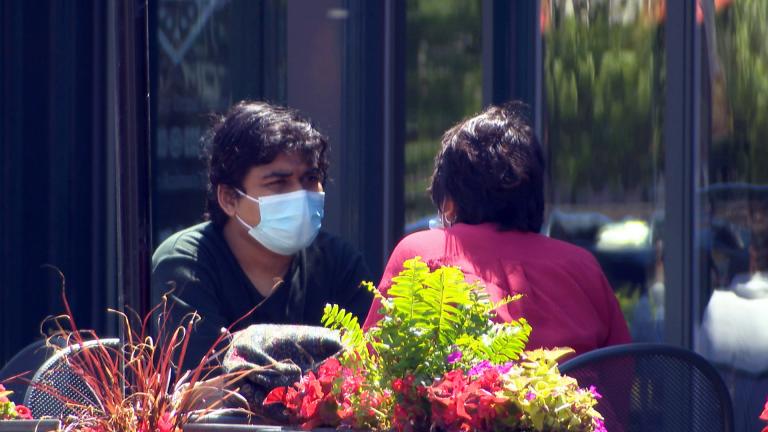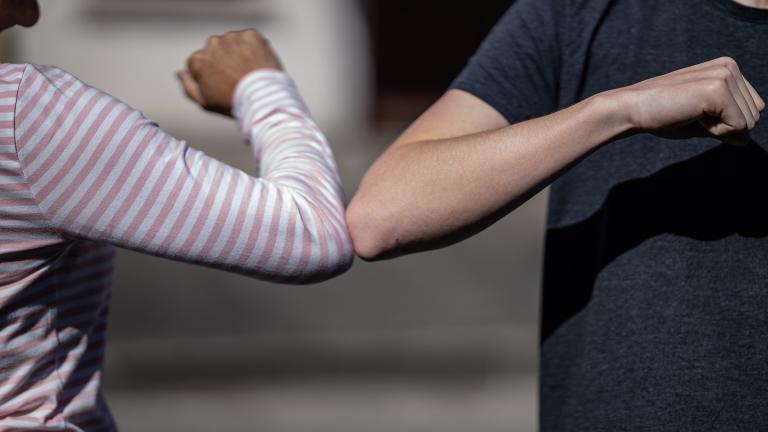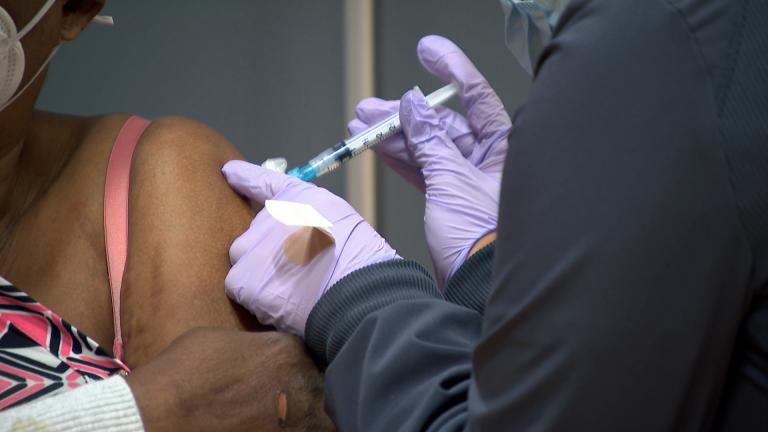WTTW News is partnering with 22 other newsrooms in the Chicago area to find out how our communities are living through the long-term effects of COVID through a survey and community conversations.
COVID-19 Etiquette
The Centers for Disease Control and Prevention is developing guidance that will ease the nationwide mask mandate on airplanes, buses and other mass transit next month, according to a U.S. official, but the existing face covering requirement will be extended through April 18.
The COVID-19 global pandemic has waxed and waned differently in different parts of the world. But in the United States, at least, there is reason to believe the end is near. About 65% of Americans are fully vaccinated, and about 29% are both vaccinated and boosted. Cases have been falling for nearly two months, with the U.S. daily average dropping about 40% in the last week alone.
As expected, Gov. J.B. Pritzker on Monday issued a new executive order that lifts the requirement for masking in most indoor public settings, citing a “vast improvement” in COVID-related hospitalizations and transmissions.
What should parents know about COVID-19 safety for their kids? Are activities such as playdates, dance classes and moviegoing OK to resume? If masks become optional at school, does that mean your children should take them off?
At this point in the coronavirus pandemic, local mask mandates are disappearing quickly while at the national level, the guidance to wear masks is staying put, at least for now. So, should you mask up or not? Infectious disease experts have some advice for wherever you live.
Up to 7 million immune-compromised Americans have been left behind in the nation’s wobbly efforts to get back to normal. Not only do these fragile patients remain at high risk of severe illness and death from COVID-19, they can harbor lengthy infections that can help spark still more variants.
The American Medical Association notes as many as 38% of health care workers face violence during their careers and that those in the field were 50% more likely to be harassed, threatened, or hurt during the COVID pandemic.
How do you ask someone to put on a face mask? And how do you tell them if they’re wearing it incorrectly? We asked a trio of experts for advice.
How do you ask someone to give you more space in the checkout line? Or tell your boss you don’t feel comfortable returning to the office? We asked a trio of experts for advice as part of our series.
How do you ask someone if they have been vaccinated? Or tell an unvaccinated family member they can’t come to your dinner party? We asked a trio of experts for advice.

